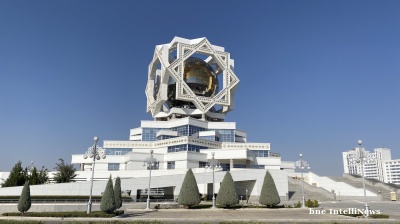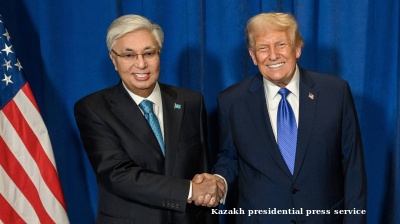The State Property Fund of Ukraine (SPF) just re-launched the country’s privatisation programme and says in August it will offer tenders for shares in eight electricity supply and generating companies. However, the Concorde Capital brokerage in Kyiv says it is very unlikely that more than one of the power plants will find a buyer.
Stakes of 25% in each of the assets are on offer and collectively worth a potential UAH4.14bn ($160mn) windfall for the government. The latest list of assets for sale published on July 24 follows on from the failure of the previous privatisation programme.
The new privatisations will be made more difficult as the SPF currently has no head, following the resignation of Ihor Bilous in April. A new director of the fund will be selected after holding consultation with the parliamentary coalition, but the country should not wait for his or her appointment to conduct privatisation in Ukraine, Prime Minister Volodymyr Groysman said on July 25, reports Interfax.
“The head of the State Property Fund: consultations with the coalition will be held and he will be selected. We should not wait for the new head. We have an acting head – the first deputy. Let him work to make it effective,” the prime minister said in an interview with Ukraine’s Channel 5 TV late on Monday.
Groysman said that the government has already drawn up a bill which will allow privatising state-owned enterprises (SOEs) to go ahead without a new head of the SPF. “We will ask parliament to pass it in September,” he said.
Broad privatisation has been on the International Monetary Fund (IMF) wish list of reforms the government should make. It appears that the government wants to sell at least something to have progress to show the IMF when negotiations over the release of the next tranche of stand-by money comes up in the autumn, speculates Alexander Paraschiy, head of research at Concorde Capital.
“The privatization of ‘some’ stakes in power distribution companies was mentioned by the IMF in its April memorandum with Ukraine, but we believe the IMF has in mind other energy companies in which the state has controlling stakes. That would mean even successful tenders won’t allow Ukraine to claim it’s fulfilling the IMF’s requirements. But nevertheless, it would be a good result if the Fund will be able to sell in August at least two of the announced eight stakes. That will allow the government to boast of the best privatisation result in the last four years (in 2014-2016, annual proceeds from privatisation were just $7-39mn),” Paraschiy says.
In December, the Ukrainian authorities failed for a second time to sell a 99.567% stake in the Odessa Port Plant (OPP), a giant chemical producing complex on the southern Black Sea coast and one of the most attractive assets in the country. In April, the government included privatisation of OPP again in a new list, but interference by oligarchs has made the plant impossible to sell.
This time round a number of electricity companies have been added to the priority action plan for 2017. The public auctions will be held on August 15-18.
However, from the eight names on the list only one is likely to be bought, says Concorde Capital. Top of the list contains power distribution company (DisCo) Odesaoblenergo, which is listed in London and has a starting price $24mn for the blocking stake on offer.
The company is controlled by the VS Energy business group, which has Russian roots and has been lobbying for years to buy the rest of the government’s stake. Russian companies have bought power generation assets across the region, which complicates ties and limits the government reactions in the face of Russian aggression. For example, the power plant that supplies the Georgian capital of Tbilisi is controlled by a Russian company and former president Mikheil Saakashvili said explicitly the government would not interfere with the company even when a short war broke out between the two countries in 2008.
“Of all the stakes, we see a high chance for only Odesaoblenergo, whose key shareholders have been trying to buy the state’s stake for more than a decade. Interestingly, the key shareholder in VS Energy holding, Alexandr Babakov, is on the Crimea-related sanctions lists of the EU and the US, while Ukraine imposed no sanctions against him,” adds Paraschiy.
Another two power plants may find an outside investor, says Concorde, but only short-term speculators and not a strategic investor. Also on the list is generating company (GenCo) Donbasenergo (starting price $26mn); and power DisCo Sumyoblenergo (starting price $14mn) controlled by Ukraine’s most powerful oligarch Ihor Kolomoisky and his partner Kostiantyn Grigorishyn.
Investing in any company together with Kolomoisky is fraught with risks. He is also the owner of PrivatBank and is currently being threatened with a criminal investigation after it transpired the shareholders of the bank had withdrawn around $5bn in related-party loans, equivalent to the bank’s entire loan book. He is also at political loggerheads with President Petro Poroshenko.
As for the other five names on the list, they are all controlled by another oligarch Rinat Akhmetov and his DTEK power and coal company. The starting price for stakes in these companies are collectively worth $95mn: GenCos Zakhidenergo and Dniproenergo, DisCos Dniprooblenergo and Donetskoblenergo, and integrated utility Kyivenergo.
“There is some modest chance that outsider investors will be interested in the privatisation of power DisCos for speculative purposes (as the planned implementation of RAB-based regulation should boost their value), including Sumyoblenergo, Dniprooblenergo and Kyivenergo. But we see no reason for anybody to participate in tenders for Zakhidenergo and Dniprooblenergo – power generation companies controlled by DTEK. In our view, they are empty shells, with all their power plants being directly managed by DTEK’s generating division,” says Paraschiy.
According to the analyst, even if DTEK wanted to buy these assets it couldn’t: the company has been badly wounded by the economic crisis and doesn’t have any money. On top of that, it lost control of both power assets and important coalmines earlier this year in the Donbas territories now controlled by the separatists, which it called “painful but no catastrophe”.
But given that this is Ukraine, market forces and commercial plans are not the only forces at play here. “At the same time, we do not rule out their privatisation, particularly if there is an under-the-table deal between DTEK and current power brokers. The starting prices of all DTEK-related assets are much lower than the prices DTEK paid (in dollar terms) for their privatisation in 2011-2012,” says Paraschiy.
Features

Washington has a new focus on a Caspian energy play
For most of the last three decades since winning independence, Central Asia has been a bit of a backwater. Not any more. The Trump administration is becoming more focused on Turkmenistan's vast gas reserves and can smell money and power there.

BOTAŞ and Turkey’s hub ambition: from “30-year dream” to cross-border reality
For Ankara, the symbolism is as important as the molecules: Turkey’s energy map is shifting from end-market to hub.

Indian bank deposits to grow steadily in FY26 amid liquidity boost
Deposit growth at Indian banks is projected to remain adequate in FY2025-26, supported by an improved liquidity environment and regulatory measures that are expected to sustain credit expansion of 11–12%





